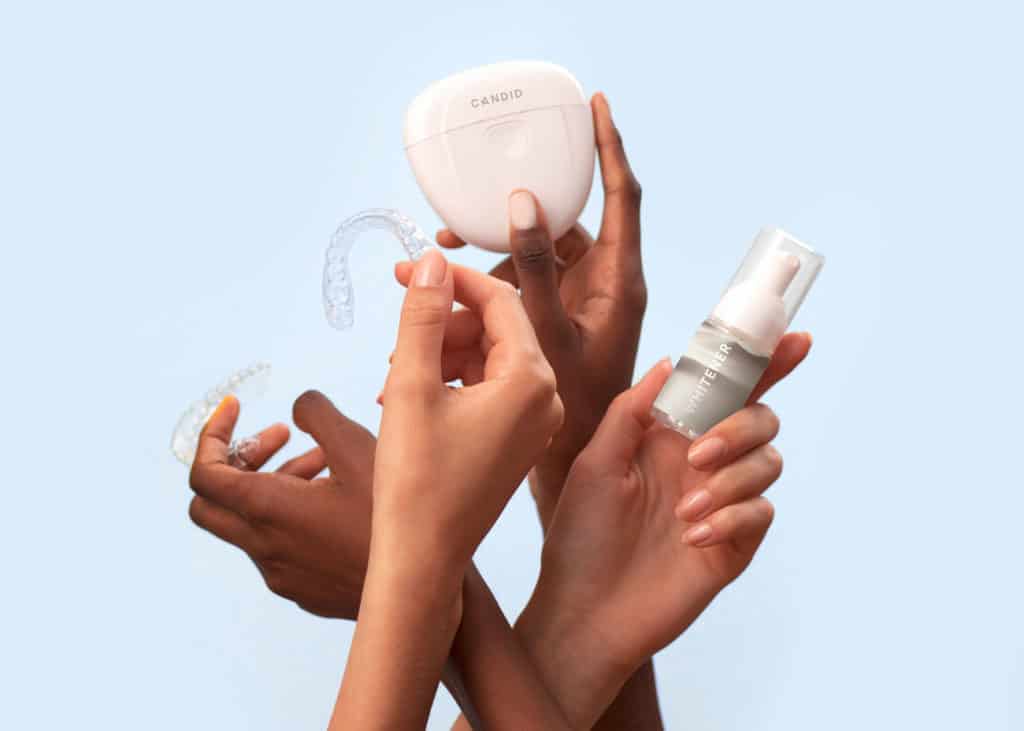How Frequently Should You Floss?

Why Should You Floss?
Plaque buildup is a bad deal anywhere in your mouth. If you don’t get the plaque out from between your teeth, it can harden into tartar and cause gingivitis. Only a professional can remove tartar, so unless you want to schedule a trip to your dental hygienist, it’s important to stay on top of flossing.
In addition to the threat of tartar, there are also bacteria that feed on the food particles in your mouth. They release enamel-eating acids that cause cavities, so it’s important to get them out through flossing.
How to Floss
Flossing isn’t rocket science, and once you get the hang of it, it’ll be easy to do without thinking about it.
With traditional floss, break off about two feet of string and wrap the ends around your two index fingers, leaving a couple of inches between them. Keep the line taut and slide it between two teeth, hitting both sides.
Do this for each pair of adjoining teeth, and use a fresh section of the line each time.

How to Floss
Flossing isn’t rocket science, and once you get the hang of it, it’ll be easy to do without thinking about it.
With traditional floss, break off about two feet of string and wrap the ends around your two index fingers, leaving a couple of inches between them. Keep the line taut and slide it between two teeth, hitting both sides.
Do this for each pair of adjoining teeth, and use a fresh section of the line each time.
What is Interdental Cleaning?
Flossing is the most common form of interdental cleaning, but there are other alternatives to traditional flossing. Interdental cleaning simply describes the process of cleaning the areas between teeth where a toothbrush can’t reach.
Traditional flossing was invented in 1819 by Levi Spear Parmly, a dentist in New Orleans. In 1882 Codman and Shurtleft began selling unwaxed silk floss, marking the first time that floss was available to the average American. In 1898 Johnson and Johnson registered the first patent for dental floss, but it didn’t become popular until after World War I.
Waxed and unwaxed flosses are both very common, and there are countless brands on the market. Does one stand above the others? Not really. The difference between top-of-the-line brands and the cheapest available is negligible.
Floss isn’t the only option, either. There is dental tape, toothpicks, and water flossers too.
Oral irrigators, or water flossers, have grown in popularity in recent years. They’re easier to use than floss because they do all the work for you through the use of pressurized air or water. Tools like Waterpik can remove food particles and bacteria from your gum lines and from in between your teeth in half the time that traditional flossing takes. However, a good flosser with high water pressure can be expensive.
There are also floss picks, which prevent floss from pinching your fingers and give you better reach for your deepest teeth, but they don’t give you quite the same flexibility as traditional floss.
When is the Best Time to Floss?
Whenever you want!
Ideally, flossing before bed is best because it ensures you’re not sitting all night with food particles in your teeth. However, it’s better to floss in the morning or the middle of the day than not at all.
Unlike brushing, which should be done in the morning and evening, the American Dental Association (ADA) recommends that you floss whenever is best for you. Too many people tell themselves to floss before bed, then they get so tired and ready to pass out that they plumb forget.
The most important thing is to build a habit of flossing daily, regardless of the time of day. Pick a time that you’ll remember and that will be easy to do, like your lunch break, while watching television, or on your commute to or from work. In that case, only do it if someone else is driving. Don’t be like this Ontario driver who got ticketed for flossing while driving.

Whenever you want!
Ideally, flossing before bed is best because it ensures you’re not sitting all night with food particles in your teeth. However, it’s better to floss in the morning or the middle of the day than not at all.
Unlike brushing, which should be done in the morning and evening, the American Dental Association (ADA) recommends that you floss whenever is best for you. Too many people tell themselves to floss before bed, then they get so tired and ready to pass out that they plumb forget.
The most important thing is to build a habit of flossing daily, regardless of the time of day. Pick a time that you’ll remember and that will be easy to do, like your lunch break, while watching television, or on your commute to or from work. In that case, only do it if someone else is driving. Don’t be like this Ontario driver who got ticketed for flossing while driving.
How do you Floss with Braces?
Stay on Top of Dental Hygiene
You only get one set of adult teeth, so it’s important to take care of them. Brush twice and floss once daily. Avoid drinking alcohol and soda daily to prevent stains and corrosion, and avoid tobacco products altogether, as these can cause cancer and gum recession.
Don’t forget to visit your dentist at least once a year, preferably every six months. Even if you’re doing everything right, issues can still arise due to genetics and other factors. Visiting your dentist can make sure you’re on top of any issues as soon as they arrive, so you’ll have the best treatment options and odds possible.
Dr. Roulston would love to help you maintain and improve your dental health so that you can count on having great teeth well into old age. Give Glenpool Dentistry a call at 918-322-5553 to book your appointment today!
Cosmetic Dentistry Services
Invisalign
Invisalign is a global leader in clear aligners, and the team at Glenpool is proud to offer this best-in-class solution for patients who want to get their teeth straightened.
KöR Teeth Whitening
At Glenpool Dentistry, we are proud to offer KöR Teeth Whitening services, a company this is globally renowned, trusted by Dr. Roulston, and loved by patients.
Porcelain Veneers
Porcelain veneers can help significantly improve the appearance of any worn, chipped, heavily filled, or irregularly shaped teeth.
Dentures & Partials
If you’re considering dentures or partials, we have the expertise and knowledge to help guide you through the decision-making process.


